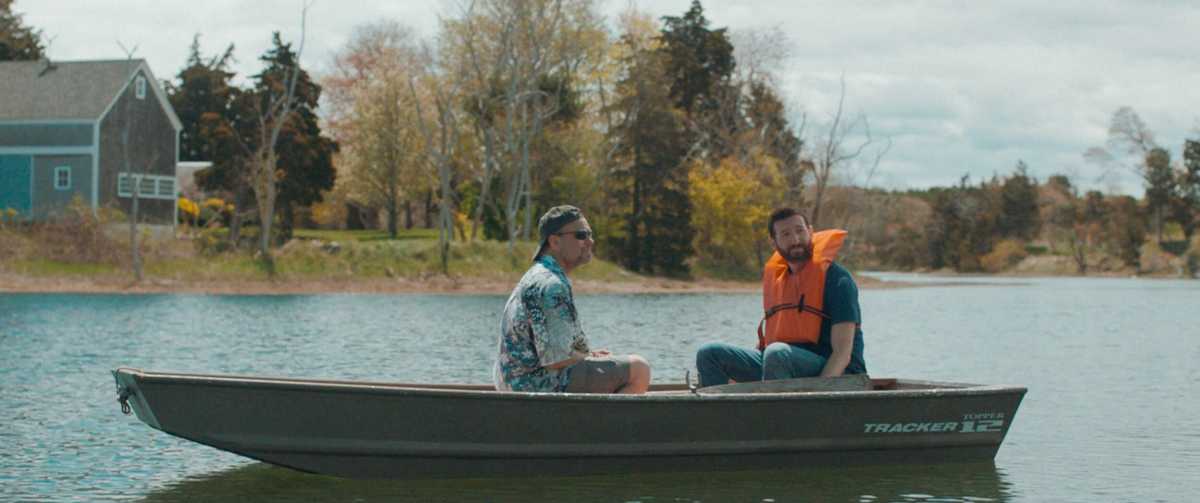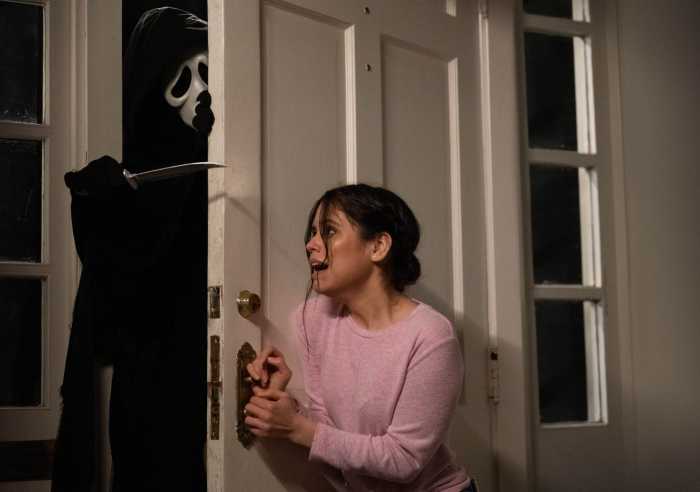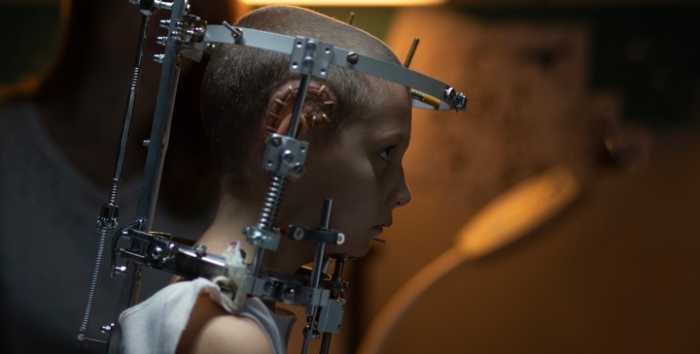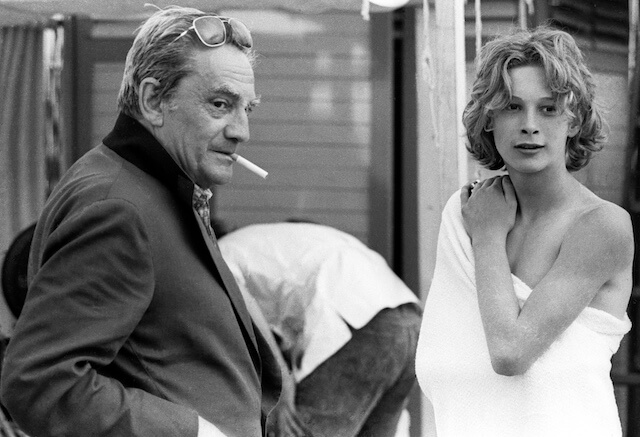In the modest, poignant drama, “Give and Take,” Ted (Norbert Leo Butz) is a man grieving over his late boyfriend, Kenneth. However, not only does Ted have to contend with losing the man he loves, he must also deal with Kenneth’s estranged adult son, Martin (Jamie Effros) returning home to sort out his father’s affairs — which includes selling Ted’s home.
Butz delivers a shrewd, nimble performance that conveys not just the love Ted had for Kenneth, but also the emotions of having one’s life upended. As Ted fights with Martin over the service, heirlooms, and the house he and Kenneth shared, he starts to come unglued, getting drunk and behaving badly. But Ted also finds some common ground with Martin, who, too, is unmoored by what he learns about the father he barely knew.
Butz spoke with Gay City News about making “Give or Take.”
Ted is a very relatable guy whose nice life quickly changes. How did you relate to him?
I related to it in personal ways. I connected to this story of this gay man whose partner has died suddenly after an illness. I had lost a brother to cancer when he was 46, and he was a gay man who left a heterosexual marriage with children to be with a man. I saw Ted’s struggles in my own family story. The emotional tug was how much the character reminded me of my own sibling. I experienced a lot of grief before we shot this; I lost a brother, a sister, and my dad within five years. It’s a film about grief that can’t really express itself because the person who has died was the glue holding this all together. Sexuality wasn’t front and center with the story. Few things are bigger than our sexuality — it’s identity — but also, the film was about life experience, age, feeling like and outsider, and grief. All of these things resonated with me.
Ted, thankfully, is not a gay stereotype. What decisions did you make about portraying him?
The film was an homage to my brother. He reminded me very much of Ted. My brother came out when he was nearly 40, after a long marriage to a good woman and had children who adored him. But he had been suppressing his identity for a long time, and it had adverse effects on his physical and mental wellbeing. He played football and did plumbing work and was a guy’s guy, and defied stereotypes of what gay is and acts like. I’m from a very conservative, very Catholic Midwest family from St. Louis. Growing up in 1970s and 1980s there was a real dread [about being gay], and my brother fought that for as long as he could. I was extremely proud of him when he was able to face our family and say, “This is who I am and who I love.” I saw the struggle in him. I used a lot of those things, even subliminally, in the film.
What backstory did you create for Ted?
This is where I think the film does qualify as — and I hate to use reductive terms — a queer film. This is a couple who could have married, but they didn’t, for whatever reason. It was a seven-year relationship, but they have not set the legal things in motion. When Kenneth dies, Ted finds himself in a precarious situation. He does not have any legal rights to his home, heirlooms, or his partner’s belongings. My brother ran into similar legal things; I think it still is an issue for people. The government and society did the right thing with same-sex marriage, but that’s not saying the culture is embracing it, or making it easier — especially in the film’s small town in Massachusetts, or in other small towns. People have their fears. The law has caught up, but has society completely caught up? I can speak for my family, who has been through something like this. I thought there must be thousands of couples that are still in this predicament.
I liked that Ted had a mean streak if crossed. Can you talk about creating friction with the other characters out of grief?
Grief — and I have experienced a lot of it — is a liberating emotion. It is the ultimate truth teller and bullshit detector. When you have lost the thing in life you are most afraid to lose, you become very brave, and, as the kids say, “You give zero fucks” about the odd comment from an asshole, or the microaggression at a supermarket. Life’s short. “Fuck you!” There is this mean streak in Ted, but at heart, he is a gentle soul. He’s been trying to find his place and a home and [it is] ripped from him. That has to infuriate him. How long he has waited. How good he’s been. He finds a partner in the middle of his life with an older guy and has a taste of bliss. How many years has he ignored homophobia from douchebags at the bar? That’s what grief does. It changes everything. The hope is that we can change, get rearranged, and still come back together and see the humanity in other people and not be consumed by bitterness and cynicism.
That said, I really like the speech Ted had about Kenneth caring for Ted’s sister.
I loved that speech too. I just followed the words and images — the sentiment was pure generosity. Generous people are rare. People who cannot find an ulterior motive for doing something good. It’s been exhibited so little, in our institutions, political leaders, and our corporate leaders. I have known a couple of people like that. I have a sister like that. They are angels who temper the bitterness and cynicism of life.
I know you mostly as a stage actor, but I always enjoy seeing you on screen. Can you talk about working in film? I’ve never seen you do musical theater on film!
I’ve actually never been offered a singing role in a film. I still get more offers to do more plays and musicals on stage. I love to work, and I’m not snobby about what medium I do. If there is an instant connection — Do I want to keep reading the next page? Did I laugh out loud? Was I moved, or was I curious? Or was I checking my email five pages in? Those are my signals to pursue the job. What kept drawing me to this film is that it doesn’t get melodramatic, angsty, or over the top. The issues are there, but these characters are really all optimists, and open-hearted people. The comedy is organic, and it tempers what could be eye-rolling or preachy. It’s a small movie with a gentle, kind heart.
GIVE AND TAKE | Directed by Paul Riccio | Opening February 11 at the Quad Cinema | Distributed by Breaking Glass Pictures



































